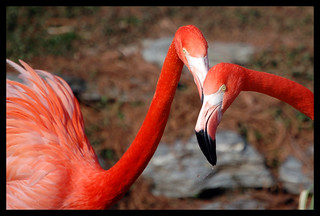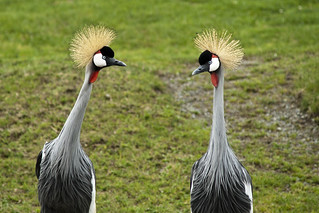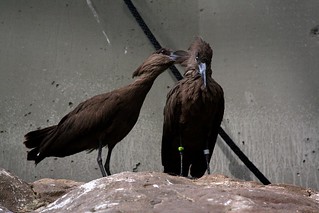Mea Culpa: on Conference Tweeting, Politeness, and Community Building
Kathleen Fitzpatrick’s post “If You Can’t Say Anything Nice” post about public shaming on Twitter came at a timely moment for me. Describing the culture of Twitter commentary, she writes:
You get irritated by something — something someone said or didn’t say, something that doesn’t work the way you want it to — you toss off a quick complaint, and you link to the offender so that they see it. You’re in a hurry, you’ve only got so much space, and (if you’re being honest with yourself) you’re hoping that your followers will agree with your complaint, or find it funny, or that it will otherwise catch their attention enough to be RT’d. I’ve done this, probably more times than I want to admit, without even thinking about it. But I’ve also been on the receiving end of this kind of public insult a few times, and I’m here to tell you, it sucks.

I read this post while at a conference, and as I read it realized that I’d been guilty of just this kind of ungenerous commentary earlier in the day. I’d disagreed strongly with one of the presenters and written a series of critiques on Twitter, which many in my community found pithy and retweeted. Let me say: I absolutely believed in what I wrote, and I don’t retract the ideas. But in the Twitter exchanges around those posts, some of the conversation got more personal. The presenter—a fellow academic and human being named Elaine Treharne, not some nameless person‐read those exchanges after the panel and was deeply hurt by them. She was right. I was wrong. I tweeted an apology, but the entire affair, coupled with Kathleen’s post, kept working on me. I ended up chatting with Elaine for several hours yesterday evening about electronic fora, professionalism, and valid critique through channels such as Twitter. I think we both learned quite a bit; I know I learned quite a bit. We still don’t entirely agree on the substantive points from her presentation, but I hope we’re now friends as well as colleagues. She agreed to let me use her name in this post.
After yesterday’s experiences and conversations, I spent the evening considering my tweets over the past several conferences I’ve attended, including in the much-ballyhooed “Dark Side of DH” panel at MLA in Boston. Kathleen is absolutely right: our field needs to seriously consider both how our current Twitter culture developed, and how it might need to change moving forward. I need to seriously consider how I engage with colleagues on Twitter; I am not blameless and I need to reform. This post is my attempt to start thinking through both how the current Twitter culture came to be and where how we might change. The post owes any of its insights to Elaine’s generous willingness to talk seriously with me about these issues after being flamed by my community on Twitter.
Only a few years ago, DH was still a fringe field, mostly ignored by academia more widely. DHers felt not like “the next big thing,” but like an embattled minority. The community was very small, and the worry at conferences was about how to convince our colleagues that what we did was valuable. How can we get hired; how can we get promoted? How can we persuade the field to pay attention to this work we find remarkable? DHers were overrepresented in online fora such as Twitter, though, which became a place to build support communities for DH scholars who felt isolated on their campuses and within the wider academic community.
 Within that framework, the back-chatter on Twitter was a valuable support mechanism. I remember sitting in a conference panel in my disciplinary field—nineteenth-century American literature—a few years ago when an eminent professor described the utter vapidity of modern reading practices (uncharitably: “kids these days with their screens! and their ADD!) compared to those of 150 years ago. Around the room, heads were nodding vigorously, and in the Q&A many other prominent members of my field rose to concur.
Within that framework, the back-chatter on Twitter was a valuable support mechanism. I remember sitting in a conference panel in my disciplinary field—nineteenth-century American literature—a few years ago when an eminent professor described the utter vapidity of modern reading practices (uncharitably: “kids these days with their screens! and their ADD!) compared to those of 150 years ago. Around the room, heads were nodding vigorously, and in the Q&A many other prominent members of my field rose to concur.
In that room, I felt like the oddball. My intellectual interests were being dismissed out of hand by the very people likely to decide whether my work would be published (and thus, whether I would get a job, get tenure, &c., &c.). I disagreed with them vehemently, but as a junior scholar was hesitant to challenge the rising consensus in the room, for fear that would further isolate me. And so I turned to Twitter to remind myself that I did have a community who would welcome my ideas on these issues. I tweeted my frustrations—I conferred with my dispersed but friendly DH community—and found support and engagement. Perhaps this doesn’t excuse public snarkiness, but that snark was a way of building community—certifying the value of unpopular interests and opinions. None of the eminent panelists from that session I attended read those conversations, nor would have. Nobody got hurt, and I felt less embattled and more prepared to go on with my work.
But that was several years ago, when I had far fewer followers on Twitter, and when DH was not at the center of the academy’s attention. Today many more academics, including those not heavily involved in DH, are on Twitter. And rather than being an nearly-ignored, fringe element of the academy, prominent DHers are being looked to as gatekeepers into a much-desired field. Panelists know to investigate how their sessions were tweeted, and they care what was said about them online. What’s more, many of our colleagues now know how to find tweets about them even when those tweets don’t include their names or usernames. We cannot assume that anonymous tweeting will do no harm to the colleagues we discuss. Tweets are not semi-private, whispered conversations in the back of the conference room; our tweets are very public and could unfairly shape public perception of the colleagues we discuss in them.
Within this framework, the same kind of Twitter chatter that helped build DH communities only a few years ago can resonate with newcomers to the field precisely as that vigorous denunciation of “technology” resonated for me as a young nineteenth-century Americanist. In other words, Twitter chatter can easily read not as community building, but as insider dismissal and exclusion. Such exchanges belie claims that DH is an open field, instead alienating scholars attempting to engage with it. We are no longer the upstarts; we are increasingly seen as the establishment. While this perception doesn’t exactly line up with reality, it certainly shapes the way our Twitter conversations—and in turn the wider DH field—are perceived by newcomers to it. In Elaine’s case, she felt she was being dismissed out of hand by scholars whose work she knows and respects; we had convinced her that she didn’t belong in DH. This is a terrible outcome our field should be wary of replicating.  Nevertheless, I remain firmly convinced that Twitter conversations can supplement and enrich academic conferences, providing a record of their proceedings, allowing scholars to engage actively with their presenting colleagues, and providing access to conferences to those scholars who cannot attend. But as a community, we need to think hard about how to retain the value of conference tweeting while mitigating the alienating effects of conference tweeting on our colleagues. This does not mean, I think, refraining from any critique on Twitter, but will mean remembering when crafting those critiques that there are real people on the receiving end.
Nevertheless, I remain firmly convinced that Twitter conversations can supplement and enrich academic conferences, providing a record of their proceedings, allowing scholars to engage actively with their presenting colleagues, and providing access to conferences to those scholars who cannot attend. But as a community, we need to think hard about how to retain the value of conference tweeting while mitigating the alienating effects of conference tweeting on our colleagues. This does not mean, I think, refraining from any critique on Twitter, but will mean remembering when crafting those critiques that there are real people on the receiving end.
Principles of Conference Tweeting
Going forward, I’m going to try and tweet conference panels following these principles.
- I will post praise generously, sharing what I find interesting about presentations.
- Likewise, I will share pertinent links to people and projects, in order to bring attention to my colleagues' work.
- When posting questions or critiques, I will include the panelist's username (an @ mention) whenever possible.
- If the panelist does not have a username—or if I cannot find it—I will do my best to alert them when I post questions or critiques, rather than leaving them to discover those engagements independently.
- I will not post questions to Twitter that I would not ask in the panel Q&A.
- I will not use a tone on Twitter that I would not use when speaking to the scholar in person.
- I will avoid "crosstalk"—joking exchanges only tangentially related to the talk—unless the presenter is explicitly involved in the chatter.
- I will refuse to post or engage with posts that comment on the presenter's person, rather than the presenter's ideas.
I am not calling for an embargo on conference tweeting, or for engagements exclusively devoted to agreement or confirmation. To turn conference tweeting into a tepid, timid echo chamber would not serve DH or the wider academy. But as the DH field grows and newcomers attempt to engage with it, we must consider the effect our chatter might have on them. I don’t want to make newcomers to DH feel as isolated as I felt in that room of eminent Americanists. Changing my public presentation on Twitter seems a small concession—worth making—if it will prevent that happening.
Thanks to Flickr users digitalART2, exquisitur, and brx0 for the Creative-Commons photos embedded here.